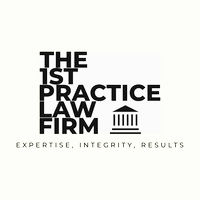How to use Nuisance Abatement to Get rid Of Vacant/Abandoned Property Ohio Revised Code (ORC) 3701.0
- Robert Crowder Jr

- Jan 30, 2023
- 2 min read

Any Ohio Citizen responds to and investigates public health nuisance complaints. In simple terms, a public health nuisance is when a property is in a condition that threatens or potentially threatens the health of a person or community.
Below are examples of environmental public health nuisances that the Health District will investigate:
Malfunctioning home septic systems and sewage
Accumulation of trash, garbage and materials on properties
Rat and rodent infestations
Animal waste and manure
Dead animals
Unsanitary, unsafe housing or living conditions
Below are examples of environmental concerns at a licensed or regulated facility:
Food Service or Food Establishment
Swimming Pool
Campground
Nuissance Complaint Procedure
Except for food complaints as allowed by law, all other complaints must be received in writing and Complaint Report Forms must be signed. Include as much detailed information regarding the problem as possible, and be certain to include your contact information so that you can be reached for further questions and/or to be notified of results of investigations.
Ohio Revised Code (ORC) 3701.01
A local board of health may, by order, compel the owners, agents, assignees, occupants, or tenants of any lot, property, building, or structure to abate and remove any nuisance therein, and prosecute such persons for neglect or refusal to obey such orders. Except in cities having a building department, or otherwise exercising the power to regulate the erection of buildings, the board may regulate the location, construction, and repair of water closets, privies, cesspools, sinks, plumbing, and drains. In cities having such departments or exercising such power, the legislative authority, by ordinance, shall prescribe such rules and regulations as are approved by the board and shall provide for their enforcement.
The board may regulate the location, construction, and repair of yards, pens, and stables, and the use, emptying, and cleaning of such yards, pens, and stables and of water closets, privies, cesspools, sinks, plumbing, drains, or other places where offensive or dangerous substances or liquids are or may accumulate.
When a building, erection, excavation, premises, business, pursuit, matter, or thing, or the sewerage, drainage, plumbing, or ventilation thereof is, in the opinion of the board, in a condition dangerous to life or health, and when a building or structure is occupied or rented for living or business purposes and sanitary plumbing and sewerage are feasible and necessary, but neglected or refused, the board may declare it a public nuisance and order it to be removed, abated, suspended, altered, or otherwise improved or purified by the owner, agent, or other person having control thereof or responsible for such condition, and may prosecute him for the refusal or neglect to obey such order.
Recent Posts
See AllRacially Motivated Prosecution: The Case of Robert Crowder Jr. Injustice takes many forms, but one of the most troubling is the misuse of...
Judicial Accountability and the Fight for Justice: The Case of Ladonna Florence The judicial system exists to uphold the principles of...
The Silent Crisis: Black Women and the Alarming Rate of Unresolved Deaths in Georgia and Surrounding States Across Georgia and...



Commenti